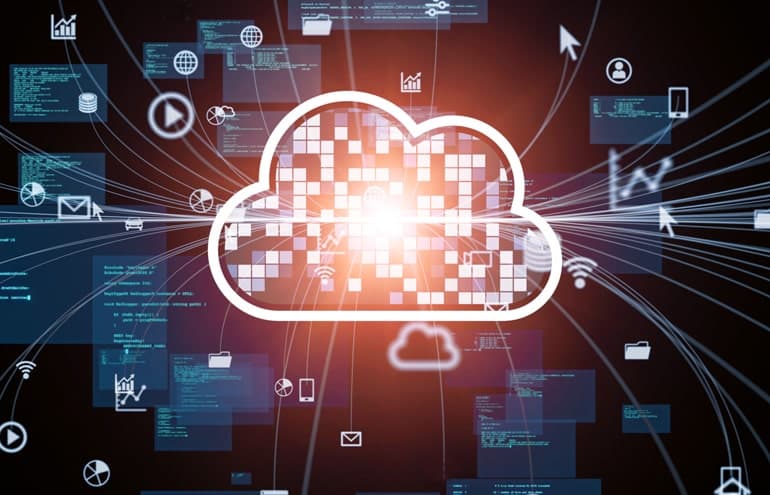What are the implications of the turn to a virtual courtroom?
As local jurisdictions across the country battle the COVID-19 pandemic, state trial courts have shut their doors, pressing the pause button on in-person court proceedings. Very few in-person jury trials have been conducted since the start of the pandemic, a situation that has prompted a backlog that will take years to resolve.
Yet, court administrators remain busy behind the scenes, devising novel ways to juggle public safety concerns with the need for timely justice. Civil litigants have now been given an option. You can either accept a remote trial or “fall in line behind the growing queue of criminal cases awaiting disposition.” Still, questions remain. How, exactly, have courts turned to remote proceedings to continue their essential operations? And, more importantly, what are the implications of this turn to a virtual courtroom?
The Virtual Courtroom
Most state trial courts were unprepared to grapple with the complexities of the COVID-19 pandemic. With no national policies in place, state trial courts have been forced to author their own protocols for handling court proceedings amidst the coronavirus. These protocols can vary dramatically within a single state, as each courthouse responds to the unique conditions of the pandemic in their community. However, what remains consistent is a desire to experiment with new technologies and tools that can recreate the courtroom experience virtually.
The legal system is a notoriously late adopter when it comes to new technologies. Consider the state of legal research at the state trial court level. Here, just like remote trials, each county has its own procedures for collecting, cataloging, and publishing court documents. Tucked away like this, state trial court records have been notoriously difficult to gather, making it almost impossible to conduct research across multiple counties and multiple states. Only recently have legal technology companies like Trellis Research, Ravel Law, and Premonition developed algorithms that can make these documents available online on a large scale, remapping the ways attorneys conduct legal research.
Galvanized by the COVID-19 pandemic, most states have begun permitting virtual hearings, with New Jersey, Connecticut, Delaware, New Mexico and Alaska mandating their use. As more courts transition online, legal professionals have begun to raise serious concerns about the kind of justice provided by a virtual courtroom.
What is gained and lost when courts embrace remote technologies, using video and audio platforms to conduct hearings and trials?
While some argue such adaptations expand access to court proceedings, others suggest virtual hearings negatively affect the quality of these proceedings. These critiques highlight how remote proceedings alter the tone of discourse, as facial expressions are rendered invisible or disrupted by unstable internet connections.
Virtual Courtrooms: Ethics in a Remote World
As courts reflect on their ability to mandate virtual trials and remote hearings, it is important to remember that virtual appearances during a case’s lifecycle are nothing new. Before the pandemic entered our lives, routine hearings for civil appearances were often conducted by telephone. Not only that, but many civil litigators had also grown proficient at conducting depositions remotely. Regardless of their novelty, remote hearings and depositions require attorneys to adequately prepare and educate themselves about how these technologies affect the litigation process as well as their ethical duties and obligations.
Research compiled by the Brennan Center suggests that the use of remote video proceedings can “undermine the attorney-client relationship, alter the perceived-credibility of witnesses, [and] lead participants to disengage with the judicial process.”
We are also beginning to see the types of ethical ambiguities that arise in a remote legal system. What happens, say, if your opposing counsel sends copies of their deposition exhibits ahead of your client’s remote deposition? Under what conditions are you permitted to look at them? To discuss them? The answer isn’t altogether clear. Most courts would probably classify these documents as an attorney work product, a category that entitles them to heightened protections. At the same time, the voluntary disclosure of these exhibits may waive any attorney work product privileges, particularly if the attorney “failed to take reasonable steps to prevent the documents from being reviewed.”
A New Virtual Reality
“This pandemic was not the disruption any of us wanted,” begins Michigan Supreme Court Chief Justice Bridget Mary McCormack. “But it might be the disruption we needed to transform the judiciary into a more accessible, transparent, efficient and customer-friendly branch of government.” Despite these hopeful words, not every state court has been amenable to trials by Zoom. Many, however, have accommodated their ever-increasing backlogs by moving matters online. Texas sits at the forefront, developing a virtual hearing initiative that includes all of its 3,000 state court judges. Other states have followed suit. Florida, California and New York have all conducted at least one virtual jury trial with mixed results.
As one can imagine, virtual jury trials present special challenges. In California, the virtual jury selection processes prompted a mistrial motion, with the movant claiming that one prospective juror was asleep and another was working out on an elliptical machine. The Hon. Vince G. Chhabria of the U.S. District Court for the Northern District of California has his own reservations about keeping virtual courtrooms after the pandemic subsides. “So much of trying a case from the lawyers’ perspective is having a feel for the courtroom and for the people in the courtroom and what is interesting to them,” he explains. At least in criminal matters, these feelings can make a difference. “What we’ve seen over the past few years is that our [physical] presence really does matter,” says Zoë Adel from New York City Court Watch. “It changes people’s behavior—judges set lower bail—when they know court watchers are watching and they’re being held accountable.”
While it is too soon to tell how permanent these virtual courtrooms will be, one thing is clear: remote trials have the potential to usher in a new era of digital justice. What will this new era look like?
Reader Perk: Trellis is providing Attorney at Work readers with complimentary 14-day access to its platform. Click here to start your free trial.
Sources:
- “Paused Jury Trial System Resists Restart Plans,” JD Supra
- “Judges differ on when it’s safe to hold in-person jury trials” by Meghann Cuni (ABA Journal)
- “Potential Jurors Exercised, Curled Up on Bed During Virtual Voir Dire, Motion Says in Asbestos Case” by Debra Cassens Weiss (ABA Journal)
- “The Jury Is Still Out on Virtual Courts” by Zoe Schiffer, The Verge
- “Bench Trial by Zoom: Tips to Prove or Defend Your Case by Video” by Jennifer Lynn Williams (Inside Track, Wisconsin State Bar)
- “‘Disruption We Needed’: Judiciary Called to Adopt Transparency, Accessibility Reforms Post-Pandemic” by Jacqueline Thomsen (Law.com)
- “Protecting Rights as court proceedings move to the virtual world” by Matt Mangino
- “Remote Depositions Bring Ethics Considerations For Lawyers” by Lindsey Mann, Alison Grounds and Christopher Kelleher (Law 360)
- “Courts attempt to balance innovation with access in remote proceedings” by Matt Reynolds (ABA Journal)
Illustration ©iStockPhoto.com
More on Attorney at Work
“Five Tips for Online Court Appearances: Takeaways from the College of Law Practice Management’s Litigation, ADR, ODR — The Next Normal” by Joan Feldman
Subscribe to Attorney at Work
Get really good ideas every day for your law practice: Subscribe to the Daily Dispatch (it’s free). Follow us on Twitter @attnyatwork.

















